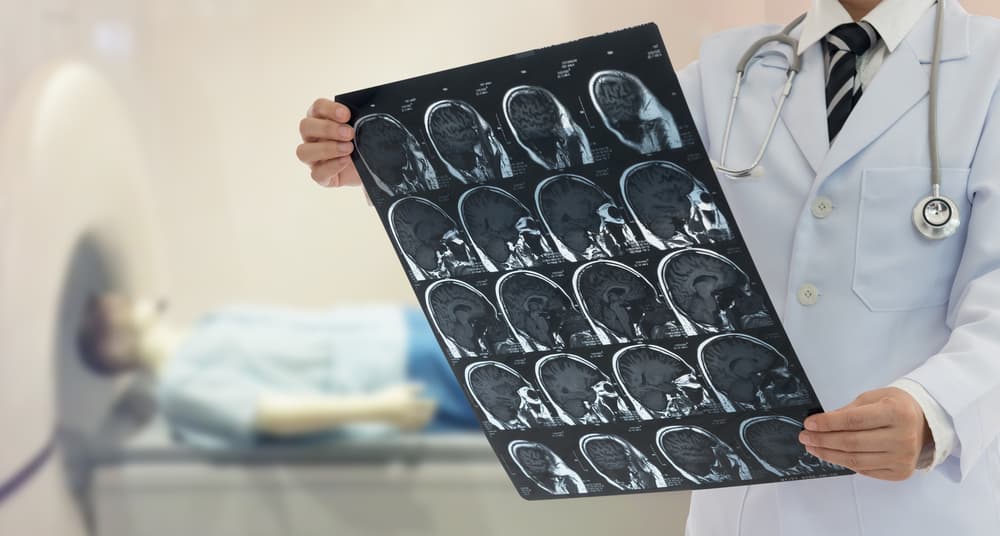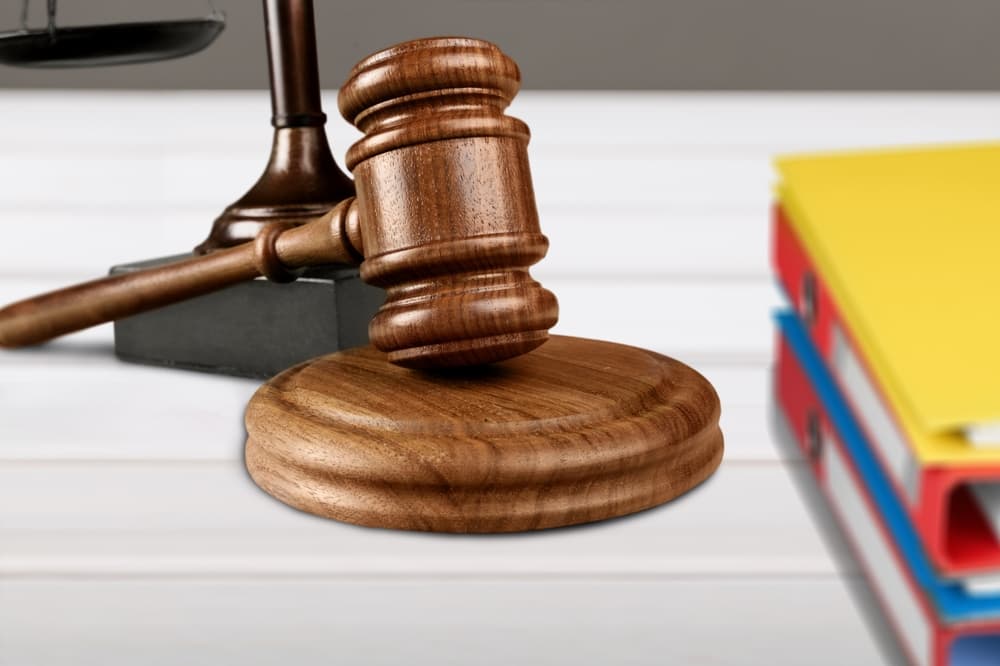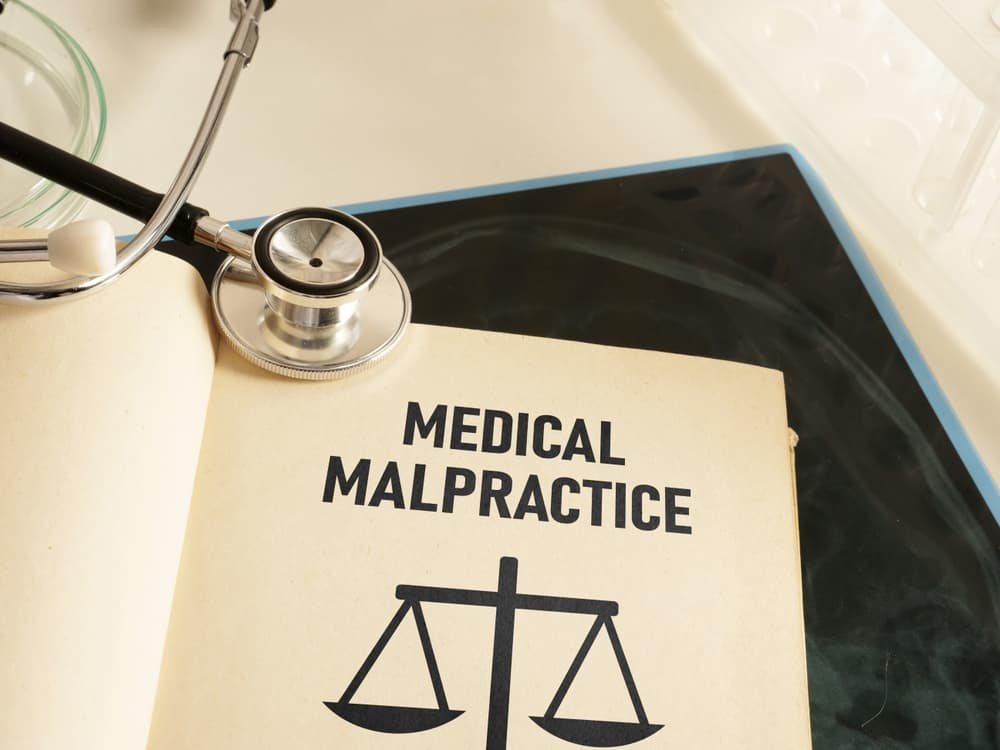The brain stem is an area of the brain that is located directly below the skull and just above the spinal cord. In fact, the brain stem is what connects an individual's brain to the spinal cord.
As such, it relays messages between the brain and other parts of the body. In addition, the brain stem is one of the most important parts of the body because it provides the necessary functions to keep an individual alive.
Brain stem injuries are severe medical complications that may occur in a motor vehicle accident, slip-and-fall accident, or other premises accident, and can occur when an individual hits their head, neck, or upper back with a significant amount of force. These injuries are sometimes also associated with diffuse axonal injuries.
If you sustained a brain stem injury or other severe injury in an accident that resulted from another party's negligent behavior, you need to seek prompt and ongoing medical treatment for your injury.
Additionally, you or someone you trust should consult an experienced brain injury attorney in your area as quickly as possible. Your lawyer can handle the legal components of your case while you focus on getting the medical treatment you need for your severe head injury.
Throughout the claims-filing and litigation processes, your personal injury lawyer will act in your best interest, representing you during settlement negotiations and other legal proceedings.
Additionally, your attorney can file a personal injury lawsuit in the court system on your behalf if the insurance company will not compensate you fairly for your brain stem injury.
Throughout the process, your attorney will advocate in your best interest and work to recover the financial compensation you deserve for your past medical expenses and anticipated medical consequences.
Limitations That Frequently Accompany Brain Stem Injuries

Brain stem injuries frequently come with extensive complications that may affect an accident victim for the rest of their life.
Some of the most common medical complications that frequently accompany a brain stem injury include:
- Comas
- Difficulty swallowing
- Severe motor difficulties
- Breathing trouble
After sustaining a brain stem injury or other serious head injury in an accident, you need to undergo all the necessary medical treatment. For example, you may need to attend speech therapy, physical therapy, or occupational therapy sessions. In some situations, a medical provider may also arrange home therapy for you.
After a serious head injury in an accident, seek continuous treatment for your injuries, consult medical specialists (such as a neurologist), and refrain from discharging yourself from medical care and treatment.
By seeking the ongoing medical treatment that you need, you increase your chances of recovering from your brain stem injury.
You also demonstrate to the at-fault party's insurance company that your head injuries are serious and that you deserve to recover fair and reasonable compensation for those injuries and other related losses.
During the time you receive treatment for your brain stem injury, a personal injury attorney in your jurisdiction can begin acting on your behalf and taking the necessary legal steps in your case.
Specifically, your attorney can begin investigating the circumstances of your accident, gathering important medical documentation, and assembling those documents into a settlement demand package in pursuit of the financial compensation you deserve to recover.
Types of Accidents That Cause Brain Stem Injuries
Brain stem injuries can happen in many ways. One of the most common causes of a brain stem injury is a motor vehicle accident. These types of accidents may cause serious injury if the accident victim's head moves abruptly forward and backward, resulting in whiplash.
They may also happen when the force of a collision causes an accident victim to strike their head on the windshield, door, window, or headrest.
Unfortunately, brain stem injuries also occur when a motorcyclist or bicyclist suffers injuries in an accident. Often, the force of a collision causes a cyclist to fall off their bike and strike the road with a significant amount of force.
Even if a bicyclist or motorcyclist is wearing a helmet at the time of their accident, a forceful enough collision may cause their helmet to crack, bringing about debilitating injuries.
Brain stem injuries may also happen when an individual is involved in a slip-and-fall accident. These accidents are common when property owners fail to maintain their premises in a reasonably safe condition to benefit property visitors.
For example, a property owner may fail to clean up a spill within a reasonable amount of time or repair a defective floor hazard quickly enough. If the accident victim strikes their head on the ground, they may suffer a brain stem injury or other type of traumatic head injury.
If you sustained a head injury in one of these types of accidents, a personal injury attorney in your jurisdiction can help.
Specifically, your lawyer can investigate your accident circumstances and file a personal injury claim with the responsible individual or entity's insurance company. Then, your lawyer can handle all oral and written communications with insurance company representatives on your behalf and negotiate your case to a fair resolution.
Proving a Brain Stem Injury Case Successfully
An experienced and compassionate personal injury attorney in your area can ensure your case satisfies the legal elements of a traumatic head or brain injury claim.
First, to recover financial compensation, the accident victim must establish that the at-fault party owed them a duty of reasonable care. Drivers must obey all traffic laws and regulations, refrain from road rage, and drive carefully and safely at all times.
Additionally, a brain stem injury victim must establish that the other party acted unreasonably under the circumstances, such as by doing something that a hypothetical reasonable person would not have done in the same situation or refraining from doing something that a hypothetical reasonable person would have done in the same scenario.
For instance, in the context of a motor vehicle accident, another driver might have failed to yield the right-of-way or operated their vehicle while intoxicated. Next, a head injury victim must establish that as a direct and proximate result of the other party's negligent actions, an accident occurred, which in turn led to their head injury.
In most head injury cases, insurance companies will dispute the causal connection between the claimed injury and the subject occurrence. For instance, the insurance company might argue that the head injury victim had pre-existing head injuries or medical complications that are causing their current symptoms.
They might also argue that the accident victim is exaggerating the severity of their symptoms, presumably in an attempt to obtain a higher monetary settlement award.
However, your attorney can counter the insurance company's arguments by retaining an experienced and qualified medical provider to testify in your case. An expert healthcare provider, such as a neurologist, can review all the medical documentation in the case, physically examine you, and draft a report that causally relates your brain stem injury to the subject occurrence.
A qualified medical expert can also testify at a discovery deposition or on the witness stand in court in support of your claim. Finally, an expert healthcare provider can anticipate the types of symptoms you may experience in the future, depending upon the severity of your injuries, and establish that you suffered a permanent injury in the accident.
An experienced personal injury lawyer in your jurisdiction can retain the experts necessary to serve as witnesses in support of your case and establish your legal burden of proof, enabling you to receive the monetary recovery you deserve.
Litigating a Brain Stem Injury Case

Before filing a lawsuit in a head injury case, a personal injury attorney will first try to resolve the case out of court through settlement. In most situations, an attorney will deal with the insurance company for the at-fault individual or entity.
However, litigation may become necessary in the case if settlement negotiations are not fruitful if the insurance company disputes fault or liability for the subject occurrence, or if the insurance company adjuster handling the claim simply refuses to fairly compensate the accident victim for their head injury.
When your attorney files a personal injury lawsuit in the state court system on your behalf, your case may still reach a resolution out of court. However, at that time, the court will issue a scheduling order for the case, which establishes various deadlines for particular milestones.
For example, during brain stem injury litigation, the parties will take part in the discovery process. At that time, they will exchange answers to written interrogatories, continue exchanging documents, and take part in discovery depositions. They may also attend one or more mediation sessions or settlement conferences that the court schedules.
If the head injury case does not reach a resolution by the end of the litigation process, your attorney can represent you at a civil jury trial or alternative dispute resolution (ADR) proceeding, such as mediation or binding arbitration.
If the case goes to a jury trial, the parties will present evidence, and the jury assigned to the case will decide all disputed issues, including the amount of monetary damages to award the accident victim for their brain stem injury.
Alternatively, at a mediation hearing, a neutral mediator will facilitate the parties' settlement discussions, weigh the pros and cons of settling, and have the parties come closer to resolving their case.
Similarly, at a binding arbitration proceeding, a pre-selected neutral arbitrator will handle the case out of court. During an arbitration hearing, however, the parties will present evidence and call witnesses, much as they would in a courtroom.
However, it is the arbitrator, rather than a judge or jury, who will decide the amount of monetary compensation to award the accident victim for their brain stem injury. Insurance companies are more likely to agree to binding arbitration if there is no dispute as to fault or liability for the underlying occurrence.
Recovering the Financial Compensation You Deserve for a Brain Stem Injury
A brain stem injury that an accident victim suffers can lead to lifelong medical complications, cognitive impairments, and other problems. Consequently, an accident victim who can satisfy their legal burden of proof can receive various forms of monetary compensation.
The specific monetary award that an accident victim recovers will depend upon the severity of their head injury and the likelihood of its permanence. Other factors that may affect the size and scope of a settlement award, jury verdict, or arbitration award include the total cost of the accident victim's medical expenses and whether they had to miss time from work after their accident.
First, a brain stem injury victim may recover compensation for their past and anticipated medical expenses. Similarly, if they had to miss time from work to attend medical appointments and get better, they can make a claim for lost earnings.
Accident victims can also pursue compensation for their intangible losses.
Lawmakers intend for these monetary damages to compensate accident victims for related cognitive impairments, mental anguish and distress, inconvenience, pain and suffering, loss of the ability to use a body part (such as from spinal cord damage), and permanent disabilities.
Your attorney can thoroughly evaluate your case and anticipate the types and amount of monetary recovery you may receive for your brain stem injury.
Call a Personal Injury Lawyer Right Away About Your Legal Options
If you or a person you love sustained a brain stem injury due to someone else's negligent or reckless act, such as in a premises accident or auto accident, you have legal options available.
A skilled personal injury attorney can promptly evaluate your claim and begin investigating.

Head injury victims must file a personal injury lawsuit within three years of their accident date. If they fail to file a timely lawsuit in their case, the court will prevent them from recovering any monetary damages. Therefore, if you recently suffered injuries in an accident, you need to act quickly to retain legal counsel for representation.
Personal injury lawyer in South Carolina can file a timely claim or lawsuit on your behalf, aggressively negotiate with representatives from the at-fault party's insurance company, and work hard to bring your case to an efficient and fair resolution.







